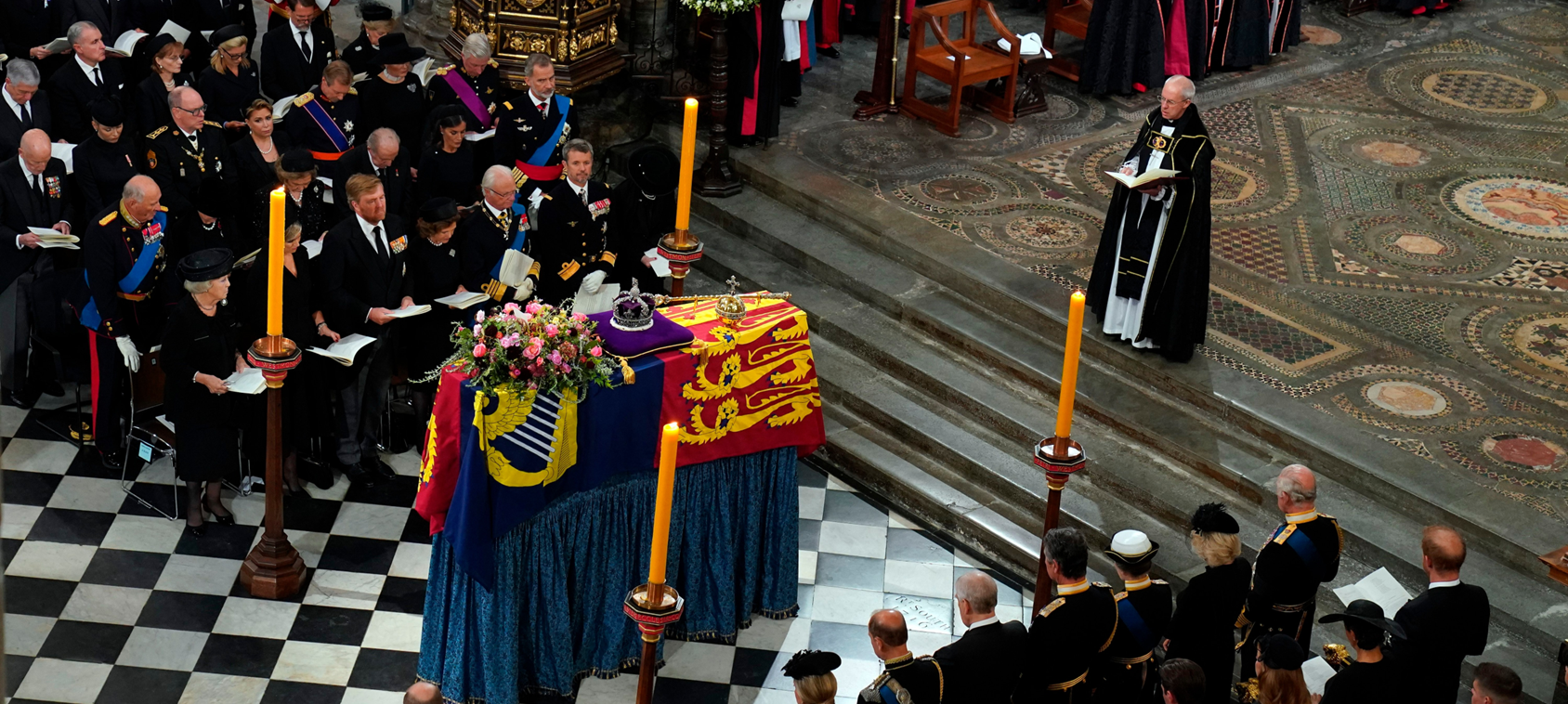It was a good funeral, and having officiated at several hundred funerals, I think I know a good funeral when I see one. The setting was magnificent, the music was wonderful, and the guest list was impressive. I am talking, of course, about the past Monday’s funeral for Queen Elizabeth.
But it was not the magnificence of Westminster Abbey, the wonder of the pipe organ and the choirs, or the impressive guest list that made it so good. Yes, there were those things that seem to be a part of most funerals. Like a favorite grandchild who must be given some part in the service, they let the Prime Minister read the Gospel lesson. Like the favorite grandchild who has no idea what Grandma’s faith was all about, the Prime Minister, who says she is not a “practising Christian,” seemed awkward as she read the words of life.
What makes a funeral good is when the deceased is remembered well with reminders of who she was rather than funny stories about embarrassing situations involving her. In a good funeral, the grief and the sorrow of the deceased family is acknowledged and honored with no condescending lines about being free from pain or in a better place. In a good funeral the favorite grandchild who must have a part is given something to read even if, like a Prime Minister, she doesn’t believe or understand a word of it. A good funeral is always over in less than an hour and never allows an open mic for those who might wish to share just a short story.
But mostly, a good funeral proclaims our sure and certain hope of the resurrection to eternal life through the Lord Jesus Christ.
Justin Welby, Archbishop of Canterbury, led a good funeral at Westminster Abbey this past Monday. The liturgy and the prayers had been said before and had been proven by time to be the best liturgy and prayers on the occasion of death. The sermon lasted five minutes, but was clear, compassionate, and comforting. It ended with what amounts to an Anglican altar call. In part, he said:
Christ rose from the dead and offers life to all, abundant life now and life with God in eternity. As the Christmas carol says, “where meek souls will receive him, still the dear Christ enters in.” We will all face the merciful judgement of God: we can all share the Queen’s hope which in life and death inspired her servant leadership. Service in life, hope in death. All who follow the Queen’s example, and inspiration of trust and faith in God, can with her say: “We will meet again.”
Many commented on the “We will meet again” phrase. We are drawn to its sentiment. But the words from the Christmas carol and the reality of judgment may have been the Archbishop’s point, and a point to be well taken. We meek souls are invited to receive the dear Christ.
Finally, at the commendation, the Archbishop borrowed words and phrases from the Book of Common Prayer: Claiming the promises of thy most blessed Son, we entrust the soul of Elizabeth, our sister here departed, to thy merciful keeping, in sure and certain hope of the resurrection to eternal life, when Christ shall be all in all; who died and rose again to save us, and now liveth and reigneth with thee and the Holy Spirit, in glory for ever. Amen.
Not “Her Majesty” or “the late Queen,” but “Elizabeth, our sister.” No aristocracy, no royalty in the Kingdom of God. Simply family, sisters and brothers by adoption. This, too, is the gospel.
The funeral was all that a good funeral should be. Nice job, Archbishop.

